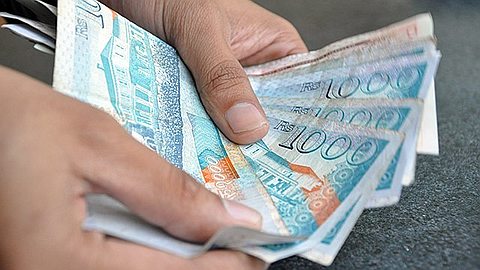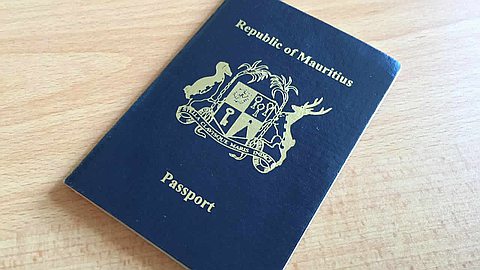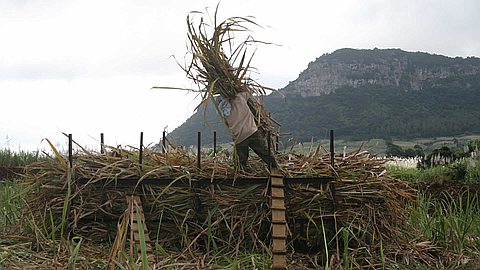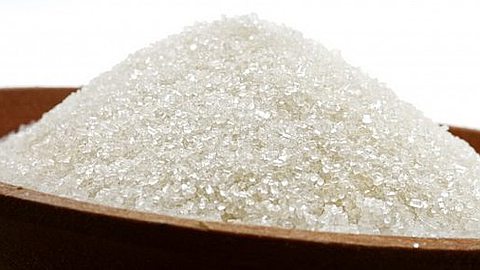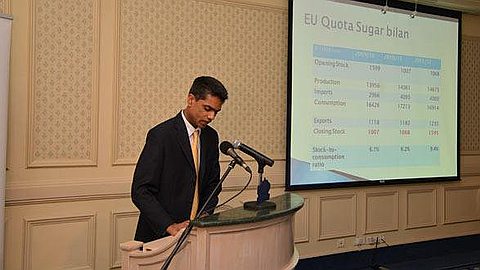The Sweetest Flames: Brown Sugar From Mauritius
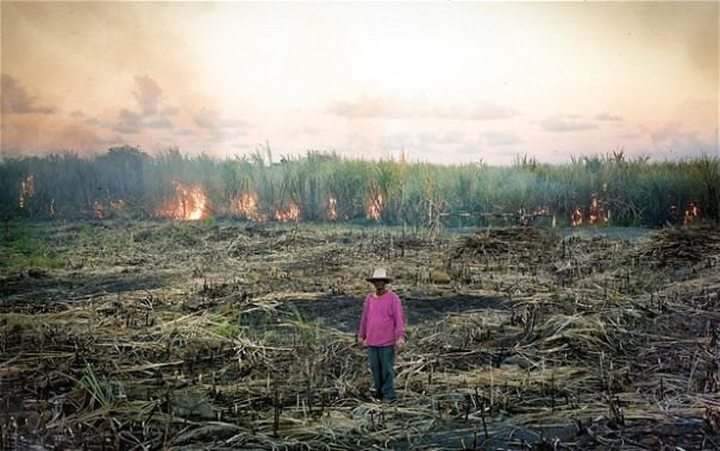
Six thousand miles stretch between the sugar cane fields of Mauritius and a company that, for more than 150 years, has stood for the island’s sticky, molasses-rich sugars. The world may hanker most after the sweet energy in refined white sugar, but Billington’s, a trading firm founded in Liverpool in 1858, has ensured the survival of traditional sugars such as dark muscovado. Sugar made from cane can be refined until white, or partially refined to make dark-brown molasses and muscovado sugars, or demerara. The other type of sugar commonly available is refined white made from beet that grows in temperate climates, typically Europe.
'By the late 1970s the other sugar firms were interested solely in selling refined white sugar, but Billington’s went the other way,’ says Ray Merrick, a director of the firm, who has worked with the company for 26 years. 'Most “brown” sugar was simply white sugar sprayed brown, but we still sold genuine unrefined cane sugar.’ In the mid-1970s Billington’s went to Mauritius to begin a project to reintroduce traditional unrefined sugars. Previously Billington’s had been an importer of refined sugar, tea and coffee. The land mass of the island in the Indian Ocean is little more than 700 square miles, 40 per cent of which is planted with tall, leafy sugar canes.
'The island had begun developing techniques for making muscovado and demerara sugar,’ Merrick says. 'We helped them experiment more with “golden” caster and granulated sugar, selling it to Sainsbury and Waitrose as Billington’s.’ Billington’s, now part of the bigger Silver Spoon Company, began offering Fairtrade Mauritian sugars in 2009. Merrick visits the island regularly to assess the progress of farming co-operatives and to monitor the benefits they receive. He also, on this occasion, took time to witness the harvest.
It would be easy to mistake a cane cutter, by his appearance, for a coalminer. By the end of the day his skin and clothing is filthy with black soot yet, illogically, the dirty side of the job makes it easier: the evening before the cane is cut, the outer leaves are burnt off so cutters can work through the crop easily, felling the canes one by one with a single slash of a machete. The harvest is gathered over a period of six months from June to December. Approaching the field, you can hear the sound of the slicing blades accompanied by the thump of the canes as they fall in a trail behind a 15-strong line of cutters, and the excited chatter of the Indian mynah birds that follow them, searching for dislodged insects.
The field is in Belle Rose, a hamlet near the east coast, where the shallow swell of the cultivated land is backed by towering hills. Behind are mountains and unspoilt valleys. The houses and shops plus the mosques, temples and churches that represent the island’s multi-ethnic population are coloured like marshmallows; most are concrete but there is the rare, older wooden building, its gables trimmed with tinwork lace.
The 99-year-old Deep River Beau Champ Milling Company is only a mile away from Belle Rose. 'Beau Champ is a major landowner and cane grower,’ Merrick says. 'As well as processing its own sugar it also mills the cane from the Fairtrade co-ops and independent growers.’ Billington’s buys Fairtrade sugar from two mills in Mauritius, Deep River Beau Champ on the east coast, and Belle Vue Mill in the north.
On arrival at Beau Champ, the freshly cut cane is dropped into a huge crusher. The juice is extracted and the fibres broken up. This material, called bagasse, is used as fuel to run the mill and to provide electricity locally (the whole industry provides more than 50 per cent of island’s energy need). Surplus molasses are used for animal feed and also to make bioethanol. 'This is a very self-reliant industry,’ Christian Marot, the general manager of the Beau Champ mill, says. The sugar process begins with the removal of impurities from the cane juice. 'After clarification, the juice is heated and evaporation can begin,’ Marot says. 'Once the juice thickens, it must be moved into the crystallisation plant and heated to a maximum of 80C so crystals form.’
Inside the mill, the air is deliciously steamy. Even the dust tastes sweet, as if it were snowing sugar. A series of closed vats lines one hall, each containing sugar at a different stage of refinement. The dark sugars contain the most molasses. 'The art is to lock in the component that gives the sugar flavour and colour, yet still make crystals that taste clean and good,’ Marot says. He opens a tap and I taste the partially crystallised liquid. It is raw, dense and delicious.
Once the sugar has reached the desired stage; dark, light or golden (but never white) it is put in a centrifuge to separate the crystals, then into a dryer. Some of the technique is not explained. 'Beau Champ’s method for making muscovado is the world’s best and it wants to retain the secret,’ Merrick says.
'Refinement of sugar is like cooking,’ Marot adds. 'Sugar cane juice varies and we adjust our methods to control it.’ After 15 hours, the sugar is ready for packing. A worker fills a sack, printed boldly with the name Billington’s, ready for shipment to Britain, the United States and other Western destinations. Beau Champ harvests some 750,000 tons of cane per year, producing around 80,000 tons of sugar.
The sugar industry has always evolved dramatically. Sugar cane was brought to the island from Java by Dutch colonists in the early 18th century. The Dutch used slaves in its cultivation, as did the island’s next occupiers, the French. But when the British took over after the Napoleonic wars, they banned slavery.
By the end of the 19th century Mauritius had hundreds of mills – their disused stone chimneys are an occasional striking sight. By independence in 1968 there were 21 mills, and now there are only six. Consolidation is part of a greater revolution now taking place. The politics of sugar are presided over by Jean Noel Humbert, the chief executive of the Mauritius Sugar Syndicate (MSS), responsible for marketing and negotiating trade policy.
'For nearly 100 years, the sugar trade protocol was based on an imperial system of partiality, whereby European countries bought sugar only from former colonies,’ Humbert says. 'But other countries said this was unfair and incompatible with WTO rules. In 2006 the EU reviewed the protocol. It has reduced the quantity of beet sugar grown in northern Europe, while allowing more cane sugar into the EU.’ This was not all good news, because the EU also cut the price, and a small island can produce only a finite amount. The MSS responded in a remarkable way: financing crops, supporting the 11,000 planters in the co-operatives, creating a generous 'up front’ pay structure, and – crucially – refusing to export anything but the finished product. 'We add value to the sugar here in the mills, so we can earn more,’ Humbert says.
It is early days and there is scepticism, but the growers trust the stern yet paternal MSS. Ray Merrick visited two Fairtrade co-ops, Medine Camp de Masque, which has 480 members amd L’Esperance, with 375 members. Both admit that the premiums they now earn from Fairtrade help to buy new equipment and provide training, and to set up peripheral out-of-season businesses such as plant nurseries. It is still early days and there are fears about the viability of the sugar industry, but the meetings were positive and Merrick saw progress. 'I can promote Mauritian sugar as a very fairly traded product,’ he says.
You can hardly accuse the sugar companies of lolling around in planters’ chairs. Beau Champ, led by Patrick d’Arifat, has opened a resort hotel with links to sugar cane. Anahita is built from the same soft lava stones that are pulled from cane fields to even out the ground for mechanical combines: 'These days the younger generation are reluctant to cut cane, and we will be moving more towards mechanical harvesting,’ he says.
The resort looks across a lagoon edged with white coral sand, to a nature reserve, the Ile aux Cerfs. It is full of sweet charm. The various dark juicy sugars are served at breakfast over yogurt; the head chef, Subash Narooa, roasts local venison with molasses at the Restaurant Origine, and uses three types on crème brûlée. So simple, and yet the clean flavours of brown sugar hide a complex and exciting story – the next chapter of which is waiting to be written.
